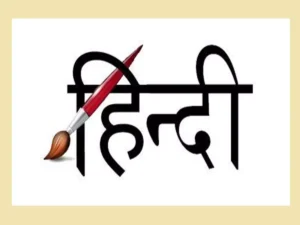The UPSC (Union Public Service Commission) conducts the Civil Services Examination, which includes the optional subject of Law. The Law syllabus for UPSC examination is divided into two papers: Paper-I and Paper-II. Below is the breakdown of the Law syllabus paper-wise:
Paper-I:
- Constitutional and Administrative Law:
- Constitution and Constitutionalism: Nature and significance of the constitution, Constitutional features, Preamble, Fundamental Rights, Directive Principles, Fundamental Duties, Amendment of the Constitution, Basic Structure Doctrine, Emergency provisions, Constitutionalism.
- Nature of the Indian Constitution: Federal and Unitary features, Distribution of legislative powers between the Union and the States, Administrative relationship among Union and States, Role of Finance Commission, President’s Rule, Governor’s Rule, Centre-State relations, Inter-State relations.
- Constitutional Authorities: President, Parliament, Prime Minister, Council of Ministers, Cabinet Committees, Supreme Court, High Courts, Attorney General of India, Advocate General of States.
- Union and State Executive: President, Prime Minister, Council of Ministers, Governor, Chief Minister, Council of Ministers.
- Judicial Review: Judicial review and its limitations, Writ Jurisdiction of High Courts and Supreme Court.
- Principle of Natural Justice: Rule against bias, Audi alteram partem, Nemo judex in causa sua.
- Separation of Powers: Doctrine of Separation of Powers, Separation of Powers under the Indian Constitution.
- Administrative Law: Delegated legislation, Administrative Tribunals, Judicial Control of Administrative action, Ombudsman.
- International Law:
- Nature and definition of International Law, Sources of International Law, Relationship between International Law and Municipal Law, State Recognition, State Succession, State Responsibility, Subjects of International Law, Treaties, State Territory, Law of the Sea, State Jurisdiction, Immunities, Settlement of International Disputes, United Nations, and its Principal Organs.
Paper-II:
- Law of Contracts and Torts:
- Indian Contract Act, 1872: Definition, Formation of a contract, Offer and Acceptance, Consideration, Capacity of Parties, Free consent, Performance of Contracts, Discharge of Contracts, Remedies for Breach of Contract.
- Law of Torts: Nature, Defamation, Negligence, Nuisance, Vicarious Liability, Strict Liability, General Defences.
- Criminal Law:
- Indian Penal Code, 1860: General Principles of Liability, General Exceptions, Joint and Constructive Liability, Criminal Conspiracy, Offences against Property, Offences against the Human Body, Offences against Women, Defamation, Attempt to commit an offence, Abetment, Criminal Conspiracy, Sedition, Public Nuisance.
- Code of Criminal Procedure, 1973: Nature and Scope of the Criminal Procedure Code, Investigation, Arrest, Search and Seizure, Bail, Trial of Warrant Cases by the Magistrates, Appeal, Revision, High Court’s Powers of Revision, Transfer of Cases, Special Courts, Plea Bargaining.
- Family Law:
- Hindu Law: Sources of Hindu Law, Schools of Hindu Law, Marriage, Divorce, Maintenance, Adoption, Partition, Inheritance.
- Muslim Law: Sources of Muslim Law, Schools of Muslim Law, Marriage, Divorce, Maintenance, Adoption, Dower, Succession, Waqf.
This breakdown provides a detailed overview of the Law syllabus for the UPSC examination. Candidates opting for Law as their optional subject should thoroughly study each topic to perform well in both Paper-I and Paper-II.





